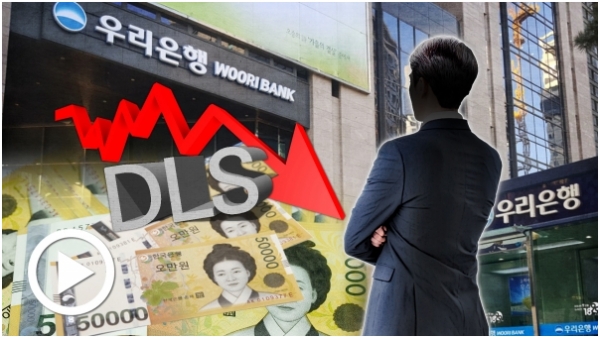Investors Shun Derivatives

The issuance of equity-linked securities (ELS) and derivatives-linked securities (DLS) plunged this month. The two types of securities have been popular among Korean investors as a product of middle risk and middle return. The recent drop in their issuance is attributed to investors' shunning of derivatives as downside risks grow due to the trade dispute between the United States and China, mass rallies in Hong Kong and the recent debacle of DLS funds based on the interest rates of major countries.
The amount of ELS issues fell to some 4 trillion won (US$3.29 billion) from 7.60 trillion won (US$6.26 billion) last month and the figure for DLS also halved from 2 trillion won (US$1.65 billion).
The total amount of won-denominated ELS issued by securities companies from Aug. 1 to 27 came to 3.83 trillion won (US$3.16 billion), while that of foreign currency-denominated ELS stood at 274.30 billion won (US$225.85 million), according to the Korea Securities Depository (KSD) on Aug. 28. The figure is little higher than half of 6.62 trillion won (US$5.45 billion), or 592.10 billion won (US$487.53 million) in foreign currencies, last month.
The amount of DLS issuance had more than halved. The figure shrunk to 857.10 billion won (US$705.72 million), falling short of half of the usual level at 2 trillion won (US$1.64 billion), including 103.50 billion won (US$85.22 million) in foreign currencies. As there has been controversy over DLS products linked to overseas interest rates recording hundreds of billions of won of estimated losses and civic groups have filed a complaint for fraudulent sales of the products, investors are struggling with “trauma” on loss of money from derivative products as a whole.
Private bankers of major securities firms said investors had made a visit to redeem ELS and DLS products and showed no intention of reinvestment. Song Eun-young, head of the private banking unit at Shinhan Bank PMW Jamsil Center, said, “Investors who have overcome the subprime mortgage crisis and the global financial crisis with more than 10 years of ELS learning effects still make a reinvestment after redemption but those who do not have much experience with ELS say they will not make an investment anymore. It is a shame that they put money into time deposits that pay 1 percent of interest due to mounting investor distrust, though not all ELS and DLS products have problems.
In particular, the current situation in which it is not easy to put in a rational economic theory at home and abroad is also increasingly making investors to avoid derivative products. He said, “Derivative phobia has always been repeated after crises but the risks have little excessively stood out this time. Variability in portfolio adjustment will remain until the first half of next year.”
Hwang Se-woon, a researcher at the Korea Capital Market Institute, said, “Both demand and supply of ELS and DLS will continue to show a sharp decline for a while. However, the market will gradually see a recovery trend if there are some improvements, including stronger regulations on duty of notification of investment risks because there are no alternatives to these products.”


